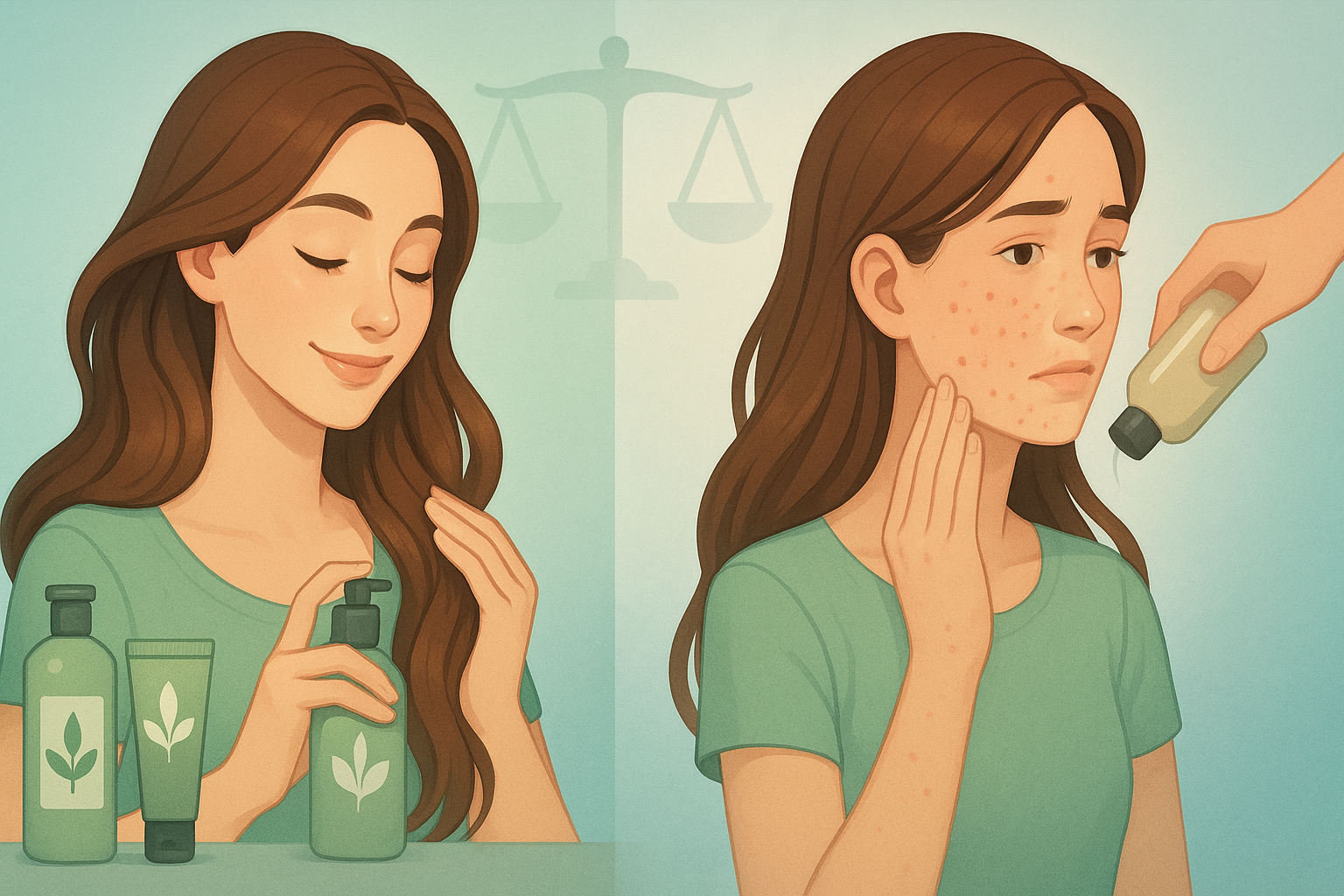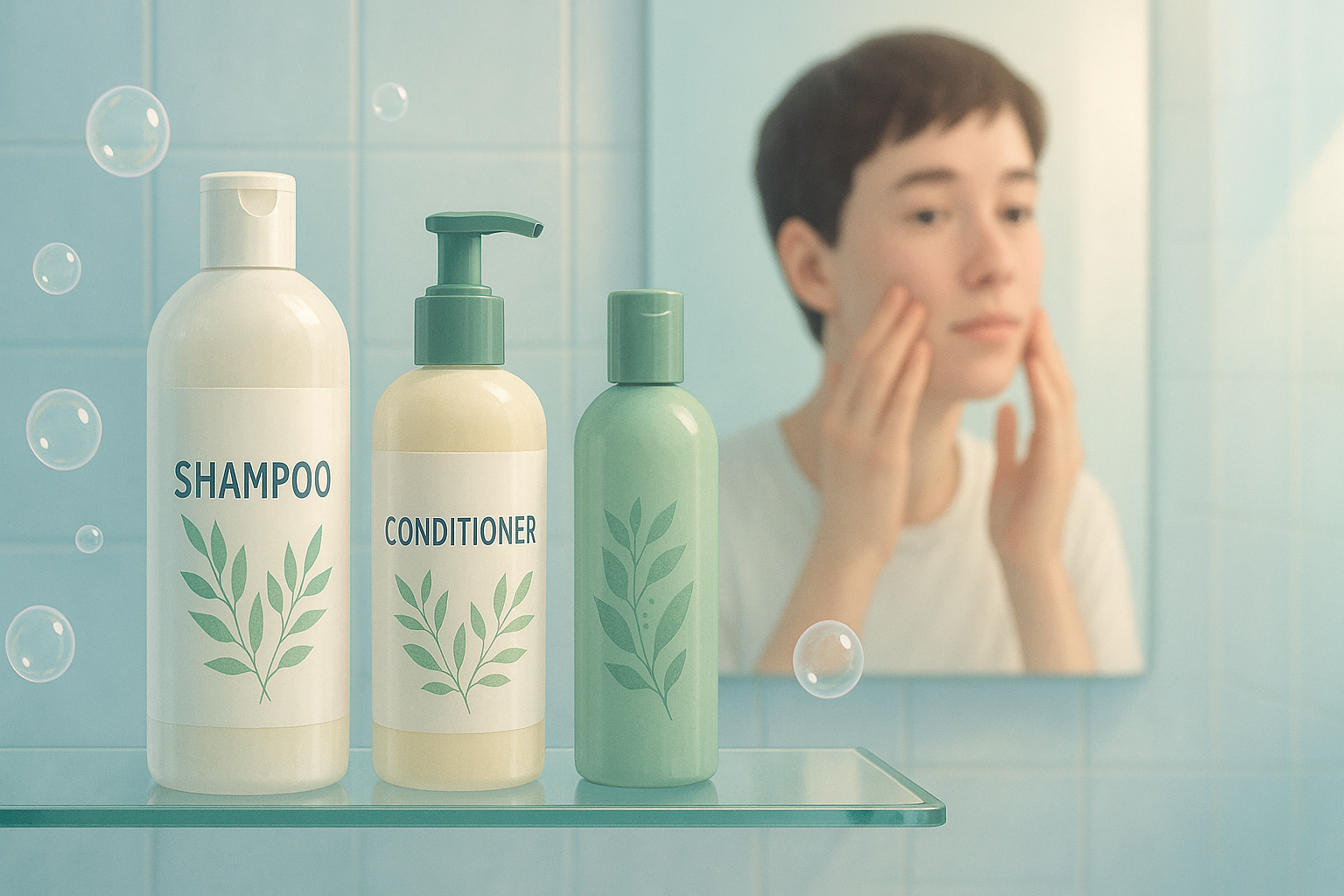How to Cure Acne: The Role of Hair Care Products
Acne is a common skin condition that affects millions of people worldwide. While many focus on skincare routines to combat acne, the role of hair care products is often overlooked. If you’re struggling with persistent acne, your hair care regimen might just be the missing piece of the puzzle. In this blog post, we’ll explore how hair care products can influence acne, and what steps you can take to minimize their impact on your skin.
Table of Contents
1. Understanding Acne: A Brief Overview
2. The Connection Between Hair Care Products and Acne
3. Ingredients to Watch Out For
4. Tips for Choosing Acne-Friendly Hair Care Products
5. Additional Tips for Managing Acne
6. Conclusion
7. FAQs
Understanding Acne: A Brief Overview
Before diving into how hair care products can impact acne, it’s essential to understand what acne is. Acne is primarily caused by the overproduction of oil by the sebaceous glands, combined with dead skin cells that clog hair follicles. This creates an environment where bacteria can thrive, leading to inflammation and breakouts.
Acne isn’t just a teenage problem; it can affect anyone at any age. Factors such as hormones, diet, stress, and genetics play significant roles in acne development. However, external factors like skincare and hair care products can also contribute to or exacerbate the condition.

The Connection Between Hair Care Products and Acne
Hair care products can affect acne in several ways:
1. Transfer of Oil and Chemicals: When you apply hair care products, they can easily transfer from your hair to your skin, especially around the hairline, forehead, and back. This can lead to clogged pores and acne breakouts.

2. Residue Build-Up: Products like conditioners, gels, and sprays can leave residues that mix with sweat and oil, further blocking pores.
3. Ingredients That Can Cause Acne: Many hair care products contain oils and chemicals that are comedogenic, meaning they can clog pores and cause breakouts.
Ingredients to Watch Out For
When selecting hair care products, it’s crucial to be mindful of certain ingredients that can exacerbate acne:
1. Sulfates: These harsh detergents can irritate the skin and strip it of natural oils, prompting the skin to produce more oil to compensate.
2. Silicones: Often found in conditioners and styling products, silicones can form a film on the skin, trapping bacteria and leading to breakouts.
3. Oils: While some oils are beneficial, others like coconut oil are highly comedogenic and can trigger acne.
Tips for Choosing Acne-Friendly Hair Care Products
To minimize the impact of hair care products on your acne, consider the following tips:
1. Opt for Non-Comedogenic Products: Look for products labeled as non-comedogenic, meaning they are formulated not to clog pores.
2. Choose Fragrance-Free Options: Fragrances can irritate sensitive skin, leading to more breakouts.
3. Go for Lightweight Products: Lightweight formulas tend to leave less residue on the skin, reducing the risk of clogged pores.
4. Rinse Thoroughly: Ensure that all hair care products are thoroughly rinsed out to prevent residue build-up.
Additional Tips for Managing Acne
Besides choosing the right hair care products, here are some additional tips to manage acne effectively:
1. Keep Hair Away from the Face: Hairstyles that keep hair off your face can prevent product transfer and oil build-up.
2. Clean Pillowcases Regularly: Pillowcases can harbor oil and product residues, so changing them frequently can help reduce acne.
3. Maintain a Consistent Skincare Routine: A gentle, consistent skincare routine tailored to your skin type is crucial in managing acne.
Conclusion
While it might not be the first thing that comes to mind, hair care products can significantly impact acne. By being mindful of the ingredients and choosing products designed to minimize breakouts, you can take a significant step towards clearer skin. Remember, it’s all about finding what works for you and maintaining a balanced approach to skincare and hair care.
FAQs
Q: Can hair products cause acne on other parts of the body?
A: Yes, hair products can cause acne on the back, shoulders, and chest, especially if they run down during showering or if residue is left on the skin.
Q: Are natural hair care products better for acne-prone skin?
A: Natural products can be beneficial, but it’s essential to check for comedogenic ingredients. Not all natural oils are suitable for acne-prone skin.
Q: How often should I wash my hair to prevent acne?
A: It depends on your hair type and lifestyle. Generally, washing your hair every two to three days can help prevent oil and product build-up.
With the right approach, you can minimize the impact of hair care products on your acne and enjoy healthier, clearer skin. 🌟
